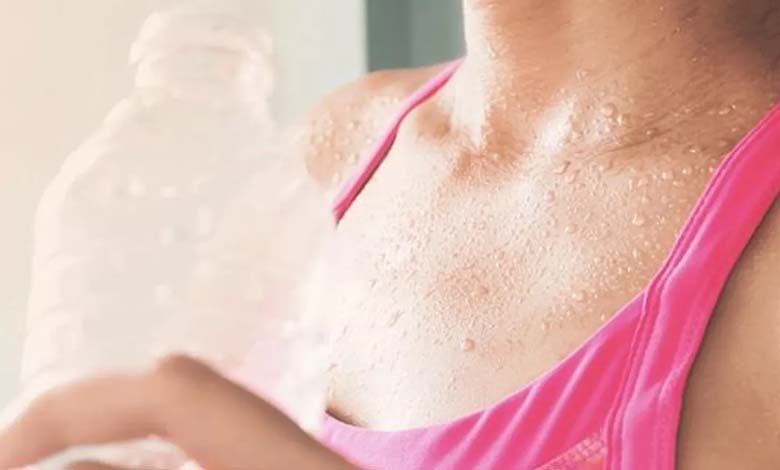Practical Tips to Reduce Excessive Sweating in Summer

As temperatures rise and humidity increases during the summer months, sweating becomes a natural response of the body to regulate its temperature. However, for some individuals, sweating can become excessive and uncomfortable, impacting their comfort, self-confidence, and overall quality of life. Excessive sweating, or hyperhidrosis, can affect various parts of the body such as the underarms, hands, feet, or face.
Fortunately, there are several practical strategies and tips to limit this discomfort during the summer. This article provides a detailed overview of natural, hygienic, dietary, and behavioral methods recommended by experts to control excessive sweating and fully enjoy the warm season.
Understanding excessive sweating
Sweating is an essential physiological mechanism for thermoregulation. When the body temperature rises, sweat glands produce perspiration which cools the body by evaporation. However, in people with hyperhidrosis, this process is excessive or inappropriate, sometimes occurring even in the absence of heat or physical exertion.
-
What’s the difference between a heart attack and a panic attack?
-
Why are hot drinks recommended in hot weather?
Hyperhidrosis can be primary (without an underlying medical cause) or secondary (related to medical conditions, medications, or stress). In summer, heat and humidity often exacerbate the problem. The goal is not to eliminate sweating entirely but to control it to avoid excessive or malodorous perspiration.
Practical tips to reduce excessive sweating
1. Choose appropriate clothing
- Favor natural, breathable, and lightweight fabrics such as cotton, linen, or fine wool, which facilitate sweat evaporation and reduce moisture buildup.
- Avoid synthetic materials that trap heat and encourage bacterial growth causing odor.
- Opt for light colors that reflect sunlight and reduce heat absorption.
- Wear loose-fitting clothes to allow air circulation.
2. Adopt good personal hygiene
- Shower regularly, preferably using gentle or antibacterial soaps that reduce bacterial flora responsible for bad odors.
- Thoroughly dry sweat-prone areas since moisture promotes bacterial growth.
- Avoid excessive rubbing that can irritate the skin and stimulate sweating.
3. Use effective antiperspirants
- Choose antiperspirants (not just deodorants) containing aluminum salts, which temporarily block sweat glands to reduce perspiration.
- Apply antiperspirants in the evening on clean, dry skin, as sweat glands are less active at night, improving absorption.
- Reapply in the morning as needed, especially during physical activity or hot weather.
-
Hoarseness: A Symptom That Could Indicate a Serious Illness
-
The Oddities of Leaders: “Titans” Defeated by Phobias
4. Adjust your diet
- Limit spicy foods, caffeine, alcohol, and hot beverages, which stimulate the sympathetic nervous system and increase sweating.
- Favor a diet rich in fruits, vegetables, and whole grains to promote good hydration and light digestion.
- Drink plenty of water throughout the day to compensate for fluid loss and help regulate body temperature.
5. Manage stress and anxiety
- Practice relaxation techniques such as meditation, deep breathing, or yoga, as stress is a common trigger for excessive sweating.
- Ensure good quality sleep, essential for autonomic nervous system balance.
-
The Difference between Deodorant and Antiperspirant: What You Need to Know
-
Drinking a lot of water… Does it really help hydrate your body?
6. Keep your environment cool
- Use fans, air conditioners, or misting devices to lower ambient temperature.
- Close blinds and curtains during peak heat hours to prevent heat buildup indoors.
- Wear a hat and use an umbrella outdoors to limit direct sun exposure.
7. Seek medical solutions if needed
- Consult a dermatologist if hyperhidrosis is debilitating; treatments may include medical antiperspirants, iontophoresis, botulinum toxin (Botox) injections, or surgery as a last resort.
- Avoid self-medication and seek appropriate medical guidance.
-
Heat stress… A climate threat to human existence?
-
Phagophobia – What are its symptoms and how can it be treated?
Excessive sweating in summer can cause significant discomfort but can be effectively controlled through a combination of simple, natural, and tailored measures. Wearing suitable clothing, maintaining strict hygiene, using effective antiperspirants, monitoring diet, managing stress, and keeping a cool environment are key steps to limit excessive perspiration.
It is important to remember that sweating is a vital mechanism for the body; the aim is not to completely eliminate it but to control it to improve quality of life, especially during hot periods. Persistent or troublesome symptoms require professional medical advice.
-
Is your Deodorant Dangerous? Here are the 4 ingredients to avoid
-
Tramadol: Why you should be wary of this powerful painkiller












